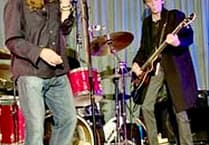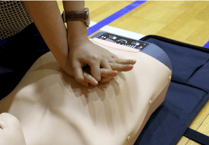Galileo Galilei was born on February 15, 1564 in Pisa. He studied mathematics and natural philosophy. In 1589, he was appointed as professor of Mathematics in Pisa. In his research he studied velocity, gravity and free fall, the principles of relativity, inertia, projectile motion and also worked in applied science and technology. He invented the thermoscope and various military compasses and used the telescope for scientific observation of celestial objects.
On 7th January 1610 Galileo observed through his telescope three small stars close to Jupiter, which as observations in subsequent nights revealed that the position of these “stars” relative to Jupiter were not fixed but orbiting Jupiter. Galileo’s observations of the satellites of Jupiter caused a revolution in Astronomy: a planet with smaller planets orbiting it did not conform to the principles of Aristotelian cosmology, on which the mediaeval geocentric world picture had been based, where the earth was the centre of the universe around which planets were held by crystal spheres, where God was above in Heaven and Hell was below. The structure of authority in the world mirrored the hierarchical structure of the geocentric world picture. At the top was the Pope, under him the bishops down to the ordinary priests. Worldly power, such as that of emperors was sanctioned and thus subordinate to clerical power. Everybody in this world picture had his (or her, although that was not stated!) appointed place and the eye of God rested upon them as those toiling in the fields, for example, were frequently told by their priests and they would be rewarded for their labour, done in faith of the Lord, in heaven if not on earth.
If, as Galileo had proved through his carefully structured observations rather than in a philosophical dispute through which the then traditional scientific discussion had been conducted, the sun was at the centre of the universe and the earth was just one of many planets orbiting the sun, the structures of authority on earth were fundamentally challenged, be it that of the church or of the aristocratic land owners.
Although Galileo’s observations were confirmed by the church’s astronomer, Christopher Clavius, the Inquisition acted as it saw all to clearly that this challenge to the church’s authority had to be supressed.
In February 1616 an Inquisitorial commission declared heliocentrism to be “foolish and absurd in philosophy, and formally heretical since it explicitly contradicts in many places the sense of the Holy Scripture”. Although Galileo avoided any engagement in this controversy for the following decade, he agreed to a request by Pope Urban VIII to present arguments for and against heliocentrism in a book. But in his ‘Dialogue Concerning the Two Chief World Systems’ Galileo did not heed the caveat not to advocate heliocentrism, by letting the connotation of simpleton, “Simplicio”, cloud the naming of the chief Aristotelian philosopher
Simplicius, famous as he might have been as an actual Aristotelian philosopher historically. The Pope did not take the suspected public ridicule lightly, nor the Copernican advocacy.
After appearing before the Inquisition Galileo denied any advocacy of Copernican ideas but was convicted for being “vehemently suspect of heresy” and sentenced to imprisonment in the form of house arrest, under which he remained for the rest of his life.
Meetings of the Linton & District History Society take place on the first Wednesday of each month, with the exception of January and September, in the Linton Village Hall at 7 for 7.30pm. Further information can be found on the Linton & District History Society section under ‘Clubs and Societies’ on the Linton Village Hall website www.lintonvillage.com




